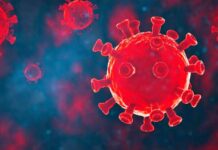The COVID-19 pandemic, caused by the SARS-CoV-2 virus, represented a turning point in the recent history of global public health. Despite concerted efforts to develop vaccines and vaccinate a large part of the global population, the world still faces significant challenges. In this article, we will explore new findings related to COVID-19, with a special focus on long-term COVID, also known as post-acute sequelae of COVID-19 (PASC), and the specific immune response associated with this condition.
Recent research has used serological assays and an 'omics' approach to understand and characterize global and specific immunity against SARS-CoV-2. The study focused on blood samples from patients with and without clinical manifestations of long-term COVID. The results indicate that patients with long-term COVID show signs of immune dysfunction and systemic inflammation, suggesting ongoing immune responses even after apparent recovery from COVID-19.
Long-term COVID is manifested by a range of persistent symptoms such as fatigue, myalgia, dyspnea and long-term effects on cardiovascular, neurological and muscular health. These findings emphasize the need for a better understanding of the pathological mechanisms of the disease in order to develop effective treatment strategies.
The Worrying Study on the Coronavirus, the Systemic Problems Generated by Long COVID in the Human Body
The study also highlighted sex-specific differences in the immune response in patients with long-term COVID. Women with this condition were observed to have lower frequencies of naïve and cytotoxic helper T cells and higher levels of T cells expressing cytolytic markers and homing receptors for inflamed tissues.
In conclusion, the current research provides valuable insight into the complexity of the immune response in chronic COVID. These findings are crucial for the development of therapeutic approaches and long-term health management strategies.
Thorough understanding of the immunological mechanisms and gender differences in the response to SARS-CoV-2 will allow us to more effectively address this condition and improve the quality of life of patients affected by prolonged COVID. As we continue to learn and adapt to this changing pandemic, it is critical that we remain vigilant and support scientific research to combat the long-lasting effects of COVID-19.
In conclusion, this article highlights the importance of continuing research and adapting public health strategies to a reply effectively to the challenges presented by COVID-19 and its post-acute sequelae. Detailed understanding of SARS-CoV-2-specific immunity and the long-term effects of long-term COVID will be essential in formulating effective therapeutic approaches and improving the quality of life for those affected.

















